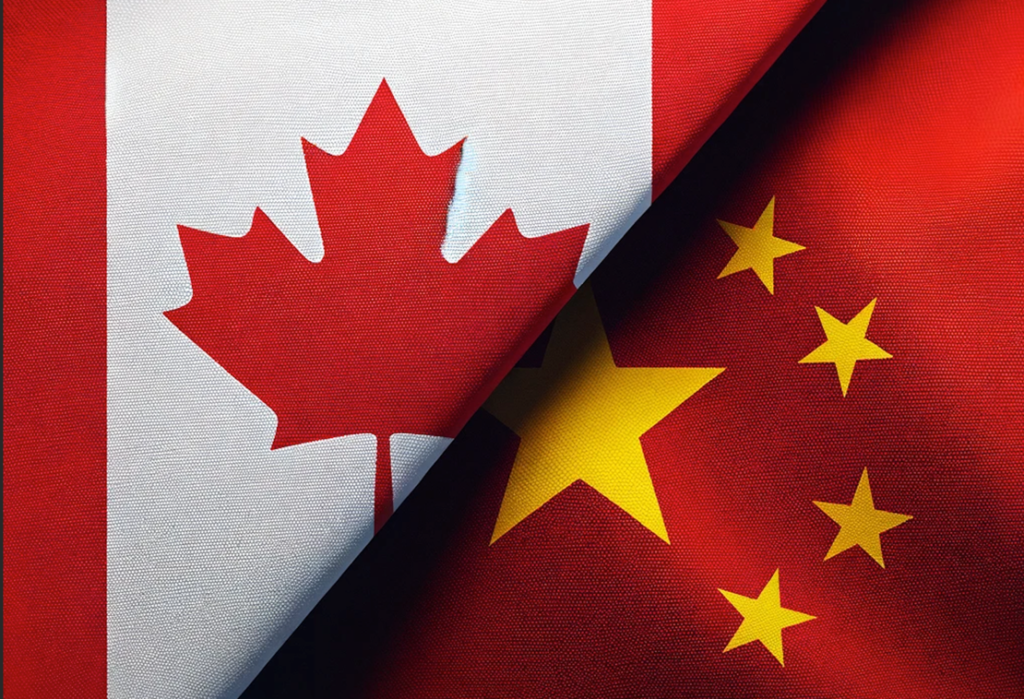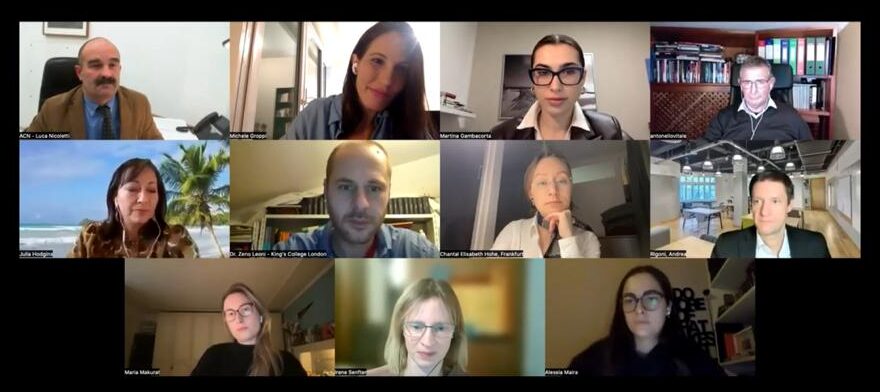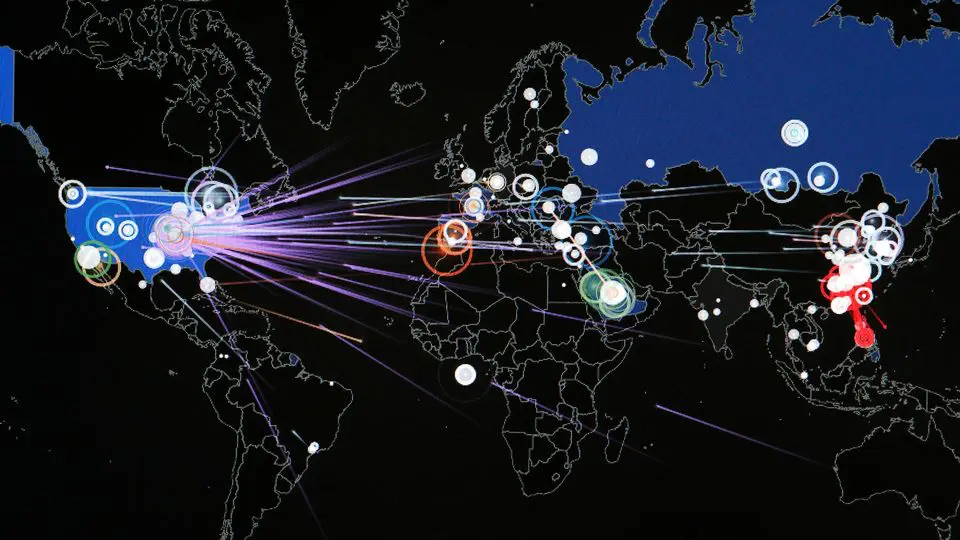by Wesley Issey Romain & Giulia Saccone - AI, Cyber Security & Space Team
Introduction
The emergence of the “smart city” as a concept in the 1980s and a reality in the mid-2000s coincided with the rapid development of technology and internet worldwide. Two decades later, in 2024, growing urbanisation, environmental concerns, social and governance issues, shifting lifestyles, and economic and residential attractiveness contribute to deeper reliance on digital tools and emergent technologies, such as Internet of Things (IoT) devices and artificial intelligence (AI). Consequently, protecting smart cities’ infrastructures, networks and IoT devices against data theft, sabotage, surveillance, ransomware, terrorism, and other cybercrimes – whether from state-sponsored hacker groups or non-state actors – is crucial for government, private businesses, and civil society stakeholders.
This paper argues that despite the constant and multifaceted cybersecurity threats smart cities encounter, holistic and long-term solutions exist to maintain and enhance the security of their infrastructures and prevent any potential massive disruption. Our article mainly uses qualitative and quantitative data from secondary sources. It will be organised into five parts in the subsequent order:
Firstly, it will provide a brief understanding of the concept of a “smart city” and a presentation of its interpretations, strengths, opportunities, and primary stakeholders. The second part (II) will discuss the leading cyber security challenges smart cities face and demonstrate how the advent of emerging technologies and new threat actors will continue to impact smart cities’ overall safety and integrity. Finally, the third, fourth, and last parts (III, IV, and V) will each present an existing and potential solution to strengthen the security of intelligent cities’ IT infrastructures against cyber threats and disruptions.
A brief presentation of the concept of the smart city
The concept of “smart city” started appearing in academia around the 1990s; however, the notion has been popularised through IBM’s Smart Cities Challenges. Although nowadays there is not a univocal definition of a smart city, for this article, we may define them as an urban area where ICT and IoT occupy a pivotal role in data collection, anonymisation and analysis for the improvement of citizens’ quality of life, addressing contemporary challenges on a multi-stakeholder partnership. It is hence characterised by the use of diverse IoT-based systems (from smart grids to garments with sensors), which change from city to city–which implies the diverse definition of smart cities. Therefore, connectivity is the indispensable trait that every IoT device should have to join the smart city’s network, and scalability is what ensures that every project can be initially implemented on a small scale and then expanded in the wide urban landscape. Furthermore, users’ participation is vital for concretising the effects of a smart city and spotting new challenges1.
The main sectors involved are the ones of mobility, where IoT devices, AI and 5G optimise citizens’ transportation both on private vehicles and public transportation; energy, where smart grids allocate energy efficiently based on demand; and health, where IoT timely communicates through 5G the physiological state of individuals to provide timely responses and targeted therapies. IoT implementation in housing is important not only for this latter aim but also for improving lifestyle, with a house capable of responding to our daily necessities in a timely manner. IoT paired with AI can be functional for improving surveillance and predicting crime. Recently, smart cities’ R&D has also focused on public administration and citizenship participation, boosting the efficiency of public administration and creating smart communities for boosting citizens' engagement in local politics2.
Smart cities aim to improve citizens’ quality of life by addressing urbanisation challenges through energy efficiency and responsive systems enabled by IoT devices. However, only 16% of cities can independently afford these projects due to high costs and diverse program requirements. To attract investors and drive innovation, cities use their smart city mission as a branding strategy, fostering advancements in underdeveloped but essential areas and consequentially creating long-term investments and competitiveness on the international stage. Partnerships with international bodies, research institutions, and other smart cities have proven effective for acquiring cutting-edge technology and best practices, mainly through city-to-city collaborations that bypass traditional bureaucratic channels.
The success of a project in a smart city resides in the coordination of the multiple stakeholders, which play simultaneous roles as planners, developers, implementation agents and follow-up responsible. The main actors involved are public stakeholders - namely national and local governments, administration and political institutions – that enable the coordination, monitoring and compliance of other players through policy formulation. Following, we have the private sector – composed of companies and start-ups primarily focused on the ICT field, investors, and in specific contexts, energy suppliers and property developers – that, in the case of cybersecurity, provide ICT infrastructures and investments in cutting-edge technology to boost the system readiness for cyberattacks. The Academic group has emerged as knowledge brokers, concurring with private counterparts in offering solutions in the implementation stage. Civil stakeholders – namely press, NGOs, and private citizens - play a dual role as recipients and contributors of projects, dispensing continuous feedback to the abovementioned categories thanks to advocacy and data sharing.
The digital challenges of smart cities with emerging technologies.
Due to its incorporation of mixed technologies, software, and hardware, a smart city would inevitably be exposed to multiple cyber attacks by various threat actors. Experts have suggested that smart cities necessitate novel and inventive approaches to safeguard devices and applications, taking into account factors such as resource limitations, the nature of distributed architecture and geographic dispersion while confronting issues such as unreliable communication, insufficient data, and privilege safeguarding. Regardless of whether the cyber attack is conducted on the perception layer (sensor, actuators, RFID or GPS), on the network layer (Bluetooth, Wi-Fi, and LAN), or on the application layer (Smart Home, Health, and Grid), most common cybersecurity risks associated with smart cities can be summarised into four types.
First, the Distributed Denial of Service (DDoS) is perhaps the most documented practice of cyber attacks against a service or a network. DDoS is a malicious attack restricting digital traffic by inundating a target with excessive internet traffic, utilising compromised computer systems and IoT devices as sources. A cybercriminal could, for example, launch a DDoS attack to gain a smart city’s charging station, traffic light, or public transportation network, which could become a component of a botnet employed to disable another system. In 2018, CISCO indicated that the number of DDoS attacks worldwide was 7.9 million and had forecasted a substantial rise to 15.4 million in 2023. Additionally, most recent statistics data showed that DDoS attacks increased by 46% in the first half of 2024 in comparison to 2023, with peak attack power jumping from 1.6 Tbps to 1.7 Tbps, in which online gaming, technology, financial services, and telecommunications were the most targeted industries with 49%, 15%, 12%, and 10% respectively.
Secondly, data exfiltration from devices such as traffic lights, CCTV cameras, parking meters, or public services servers is another significant challenge for smart cities as they gather extensive data from citizens. Public data theft violates the confidentiality, integrity, and availability of public data, as cybercriminals can use compromised information to perpetrate ransomware or other fraudulent transactions with third parties on the dark web. Privacy violations, financial loss, legal problems, and loss of trust from citizens are just a few of the damaging effects of data leaks from a city’s IoT devices. Such incidents have happened and are more frequent than one may think. For example, in July 2024, a large-scale data theft conducted by a cybercriminal group was reported in the United States in Columbus, Ohio. After the breach of private data stolen from over a hundred thousand ordinary people stored in public IT infrastructures and municipal agencies, a ransomware operation was launched, and sensitive information was divulged on the dark web. This type of incident will likely occur again as cities rely more and more on technology.
Thirdly, device hijacking is another threat associated with smart cities. Hacker groups often seek to control a device to influence the myriad of technological equipment constituting a smart city infrastructure and network. IT experts argue that IoT devices frequently possess default credentials that malicious actors can use, and weak data encryption, absence of periodic software updates, and interconnectedness render them easily compromised by hackers.
Fourth, Permanent Denial of Service (PDoS) is documented as a devastating cyber risk to any technologically advanced and dynamic city. IT experts have noted that, in contrast to sporadic DDoS, which results in ephemeral cyber disruptions, PDoS causes permanent hardware damage and substantial economic consequences, potentially endangering human life in healthcare and critical infrastructure sectors.
Urban areas are projected to accommodate 68% of the global population by 2050, propelled by urbanisation and demographic expansion. Consequently, such prevision, coupled with the advancement and availability of devices and digital tools, the participation of state-sponsored and non-state actors groups in malign cyber-attacks is undoubtedly a source of concern for developed and emerging countries, global cities and their inhabitants. At the same time, it should be observed that cities worldwide do not share the same level of cyber threat. As Cesar Cerrudo mentioned, while most cities possess technology, the effectiveness of smart cities varies based on the extent of technological advancements implemented. Some cities have implemented more technology while others have less.
Smart cities are expected to face several digital challenges with the availability and advent of new technologies; nevertheless, solutions and measures exist to enhance security and prevent disruptions.

Source: Illustration generated by AI
Threat detection and investments in advanced technology
Existing measures are primarily concerned with ensuring data and privacy protection based on trust, integrity, and confidentiality to prevent leaks from sensors, cameras, other IoT devices, and critical infrastructures. To support them and address the main concerns raised by industry and academia on privacy and data protection, the cybersecurity sector has focused on the mitigation of breaches in IoT for privacy protection, improving device authentication, access control, and firmware updates to provide better data anonymisation, secure data sharing and analytics for safe decision-making. A smart city is a goldmine of personal data due to its pivotal role in enhancing the quality of life of citizens and the interconnectedness through IoT. This provides criminals with a myriad of access points on devices with limited.
Blockchain technology has demonstrated a high potential solution thanks to its capacity to transmit information securely and directly. Specifically, this technology can be applied to cybersecurity to protect personal data. In the case of e-governance, it enables individuals to manage their credentials independently, bypassing centralised controlling authorities. Seoul is a fitting example: in 2018, the city started applying blockchain in its public administration, and during the same year, it developed a metaverse secured by blockchain for document issuance and citizen participation.
AI application is another game-changing technology that can boost smart cities’ cybersecurity thanks to their high computational and predictive qualities, which, applied to the fog computing layer, could protect them from cyberattacks despite their resource constraints – i.e. limited storage and RAM3. In particular, the fog layer managing the data transfer between the IoT devices and the Cloud layer provides a higher amount of computing load than those two extremes, lower latency in the communications between the IDS and the IoT, and lower energy consumption. This enables the operators to isolate the attack, repel it, and avoid its spread throughout the network, allowing an interrupted flow of smart city services. In particular, ML can be applied to both SDIS and AIDS. On the other hand, it can ease the time-consuming characteristics of updating the signature database. Regarding the latter, it can enhance the precision of attack detection, lowering the rate of false positives.
Biometrics is already used to facilitate authentication thanks to the uniqueness of individual features, addressing the constant concern for privacy and security. They have already found wide applications in the smart economy field, like the fingerprint and face recognition used by Apple Pay, face recognition for video surveillance devices of Amazon Web Services, and voice recognition employed by Amazon Alexa for telemedicine in the UK.
Strengthening and facilitating public-private partnerships
It is already visible from these few examples how private and public sectors coexist in the development of smart cities’ security, acting in synergy for optimising the outcomes of their projects thanks to risk and resource sharing and the relative reduction of costs; access to the private’s technical and management skills and the innovation enhancement for effective, creative and real-time solutions. An example is the collaboration between Barcelona’s Municipal Institute of Informatics and CISCO to implement a communication protocol for CERT and CSIRT to detect, share, respond and recover from cybersecurity threats and vulnerabilities in IoT devices.
Indeed, Barcelona is a perfect example of a smart city where public and private partnerships (PPP) can thrive thanks to companies with a sound knowledge of the local market, the involvement of all the stakeholders – citizenship included – to commit them towards the same type of projects and ease the tensions through transparency and responsibility, and trust-building practices, which are paramount in the initial phases. The cruciality of trust building is visible in the failure of the PPP of Sidewalk Labs and Waterfront Toronto, where the lack of involvement of the citizens led to tensions that resulted in boycott protests of the project.
However, it must be pointed out that this factor is crucial in democracies, where citizenship plays an active role in shaping smart cities. Nevertheless, transparency is a value that benefits all smart cities regardless of the ongoing regime since it communicates the reliability of the projects and the worth of investing in this transformation.
Strengthening and facilitating regional and international cooperation, information sharing and dialogue among experts
PPPs are not the only method to transform and strengthen the security of smart cities; international fora, capacity-building projects, and collaboration among cities play fundamental roles. At the international level, the United Nations Economic Commission for Europe (UNECE) and the UN-HABITAT coordinate the global platform "United for Smart Sustainable Cities" (U4SSC) to encourage the transition from traditional to smart cities, which has also developed a set of key performance indicators (KPIs) for sustainable cities, a valuable instrument for agenda setting and performance evaluation adopted by more than 50 cities worldwide.
The ITU, thanks to the Smart Sustainable Cities program, supports the development of stable, secure, reliable and interoperable ICT devices for sustainable cities. The Smart Cities Council is a network of experts providing capacity building and investment programs, which, among all the objectives, aim to ensure cyber, privacy, and data protection. At the regional level, for instance, the EU provides the Smart Cities Marketplace: a platform for the various stakeholders involved in the field to improve citizens’ quality of life and increase the competitiveness of European cities and industry with respect to EU climate targets.
While at the level of bilateral agreements, Singapore has exploited its expertise to catalyse agreements from distant poles, such as China and the US, for mutual cyber capacity-building projects. Those multilevel initiatives have a common effect that addresses one of the biggest challenges of smart cities intra and interoperability: the normative and standard differences between cities, which makes PPP challenging and prevents effective data protection, the biggest concern in the research field.
Conclusion
In conclusion, despite the persistent, increasing, and diverse cybersecurity risks faced by smart cities, comprehensive and sustainable solutions are available to safeguard their infrastructures and avert significant disruptions. Firstly, it has been shown that the notion of a smart city originated in academic circles throughout the nineties. The concept emphasises mobility, energy, and health, with research and development concentrating on public administration and citizen participation. It was argued that successful projects necessitate the collaboration of several stakeholders, including planners, developers, implementation agents, and follow-up measures, to enhance the quality of life for citizens.
The second part of the article sought to demonstrate that smart cities incorporate various technologies, including software and hardware, making them vulnerable to multiple cyber-attacks from a wide range of threat actors. DDoS and PDoS attacks, data exfiltration, and device hijacking attacks are common cybersecurity dangers. The involvement of both state-sponsored and non-state actors in malicious cyber-attacks is a cause for concern for both developed and emerging nations, as well as capital cities around the globe and their populations.
Thirdly, it has been observed that investments in cutting-edge technologies to prevent cyber threats are deemed pertinent and practical. For instance, tools such as blockchain technology provide a safe and direct method for information transmission, positioning it as a viable option for cybersecurity. Besides, artificial intelligence applications can improve cybersecurity in smart cities through their computational and predictive abilities. Lastly, biometrics, characterised by its distinctive attributes, is employed for authentication, mitigating privacy and security issues.
The successful example of the city of Barcelona, introduced in the fourth part of the paper, confirmed that public-private collaborations improve security and optimise project results via risk and resource sharing, cost reduction, access to private technical and managerial expertise, and innovation. Additionally, it has been demonstrated that transparency is essential for smart cities.
Lastly, multilateral forums are part of the solution. International forums and initiatives to increase capacity building are essential to strengthening the safety of smart cities. Developing reliable, secure, and stable information and communication technology devices must be encouraged within forums such as the ITU’s Smart Sustainable Cities. Only through the listed solutions can government, public, and private stakeholders ensure that smart cities remain safe.
References
- Houichi, Mehdi. “Cyber Security within Smart Cities: A Comprehensive Study and a Novel Intrusion Detection-Based Approach.” p.394. ↩︎
- Hermann P. Rapp., and Moebert, Joechen. “Smart Cities: Investing in the urban future”. ↩︎
- Houichi, Jaidi, Bouhoula, 2024; ↩︎
Abaimov, Stanislav. “Understanding and Classifying Permanent Denial-of-Service Attacks”. Journal of Cybersecurity and Privacy. 2024; 4(2):324-339. Retrieved from: <https://doi.org/10.3390/jcp4020016>
Admass, Wasyihun Sema., Yirga Yayeh Munaye., and Abebe Abeshu Diro. 2024. “Cyber Security: State of the Art, Challenges and Future Directions.” Cyber Security and Applications 2:100031. Retrieved from: <https://doi.org/10.1016/j.csa.2023.100031>.
Alibasic, Armin., et al. “Cyber Security for Smart Cities: A Brief Review”. In Data Analytics for Renewable Energy Integration: 4th ECML PKDD Workshop, DARE 2016, Riva del Garda, Italy, September 23, 2016, Revised Selected Papers 4. 22-30, Springer International Publishing. 2017. Retrieved from: <https://e-tarjome.com/storage/btn_uploaded/2019-08-14/1565752729_9885-etarjome-English.pdf>
BASE. “Smart City”. May 2019. Retrieved from: <https://www.baseland.fr/en/recherches/smart-city/>
Borgeaud, Alexandra. 2024. “Global web application critical vulnerability taxonomy 2023”. Statista. February 20, 2024. Retrieved from: <https://www.statista.com/statistics/806081/worldwide-application-vulnerability-taxonomy/>
Cerrudo, Cesar. “An Emerging US (and World) Threat: Cities Wide Open to Cyber Attacks”. Technical Report, Securing Smart Cities, 1-22, 2015. Retrieved from: <https://securingsmartcities.org/wp-content/uploads/2015/05/CitiesWideOpenToCyberAttacks.pdf>
Cho, Young-Im. “Lecture 4 - Biometrics in Smart City” Lecture, September 2023. Retrieved from: <https://pb.edu.pl/iro/wp-content/uploads/sites/32/2023/09/Biometrics_intelligent_solutions_III_ON-SITE_Young_Im_Cho_4.pdf>
“DDoS Attacks Trends for Q1-Q2 2024: Insights from Gcore Radar Report.” GCORE, August 14, 2024. Retrieved from: <https://gcore.com/blog/radar-q1-q2-2024-insights/>
Department of Health and Social Care. “News Story - NHS Health Information Available through Amazon’s Alexa.” October 7, 2019. Retrieved from: <https://www.gov.uk/government/news/nhs-health-information-available-through-amazon-s-alexa>
European Commission. “Smart Cities”. European Commission. Retrieved from: <https://commission.europa.eu/eu-regional-and-urban-development/topics/cities-and-urban-development/city-initiatives/smart-cities_en>
“European Cybersecurity Test Project in the City.” 2022. Info Barcelona. January 2, 2022. Retrieved from: <https://www.barcelona.cat/infobarcelona/en/tema/smart-city/european-cybersecurity-test-project-in-the-city_1141253.html>
Gatlan, Sergiu. “City of Columbus: Data of 500,000 stolen in July ransomware”. Bleeping Computer. November 4, 2024. Retrieved from: <https://www.bleepingcomputer.com/news/security/city-of-columbus-data-of-500-000-stolen-in-july-ransomware-attack/>
Hamid, Bushra. et al. “Cyber Security Issues and Challenges for Smart Cities: A survey”. 13th International Conference on Mathematics, Actuarial Science, Computer Science and Statistics (MACS), Karachi, Pakistan, 2019, pp. 1-7. Retrieved from: <https://ieeexplore.ieee.org/abstract/document/9024768>
Houichi, Mehdi., Faouzi Jaidi., and Adel Bouhoula. 2024. “Cyber Security within Smart Cities: A Comprehensive Study and a Novel Intrusion Detection-Based Approach.” Computers, Materials & Continua 81 (1): 393–441. Retrieved from: <https://doi.org/10.32604/cmc.2024.054007>
Iberdrola, “BLOCKCHAIN4CITIES – Blockchain Technology at the Service of Urban Management.”. Retrieved from: <https://www.iberdrola.com/innovation/blockchain-for-smart-cities-urban-management>
Institute for Defense and Business (IDB). “What Are the Cybersecurity Risks for Smart Cities” <https://www.idb.org/what-are-the-cybersecurity-risks-for-smart-cities/>
International Telecommunications Union (ITU). “Smart Sustainable Cities.” ITU, 12/21. Retrieved from: <https://www.itu.int/en/mediacentre/backgrounders/Pages/smart-sustainable-cities.aspx>
Jayasena, N.S., H. Mallawaarachchi, and K.G.A.S. Waidyasekara. “Stakeholder Analysis For Smart City Development Project: An Extensive Literature Review.” Edited by E. Mohd Ahnuar, R. Mohd Nordin, J. Yunus, and N.A. Abdul Rahman. MATEC Web of Conferences 266 (2019): 06012. Retrieved from: <https://doi.org/10.1051/matecconf/201926606012>
Machap, Kamalakannan. & Hua Qiang. “Evaluating firewall tools and techniques in enhancing network security”. Journal of Applied Technology and Innovation, Vol. 6, No. 1, 2022. Retrieved from: <https://www.researchgate.net/publication/357553876_Evaluating_firewall_tools_and_techniques_in_enhancing_network_security>
Md Mamunur, Rashid., et al. “Cyberattacks Detection in IoT-Based Smart City Applications Using Machine Learning Techniques.” International Journal of Environmental Research and Public Health 17, no. 24 (December 14, 2020): 9347. Retrieved from: <https://doi.org/10.3390/ijerph17249347>
Medium. “Cybersecurity for Smart Cities: Addressing Vulnerabilities in Urban Infrastructure”. Emerging India Analytics, February 2024. Retrieved from: <https://medium.com/@analyticsemergingindia/cybersecurity-for-smart-cities-addressing-vulnerabilities-in-urban-infrastructure-516298a1882e#:~:text=Investing%20in%20advanced%20technologies%20such,before%20they%20cause%20any%20damage.>
Mijwil, Maad M. et al. “Cybersecurity Challenges in Smart Cities: An Overview and Future Prospects”. Mesopotamian Journal of Cybersecurity. Vol. 2022, pp. 1- 4. Retrieved from: <https://www.iasj.net/iasj/download/6b7ef8fef416253e>
Quan, Xiangyu, and Marte C.W. Solheim. 2023. “Public-Private Partnerships in Smart Cities: A Critical Survey and Research Agenda.” City, Culture and Society 32 (March):100491. Retrieved from: <https://doi.org/10.1016/j.ccs.2022.100491>
Rapp, Hermann P., and Moebert, Joechen. “Smart Cities: Investing in the urban future”. Focus Germany, Deutsche Bank Research, October 20, 2023. Retrieved from: <https://www.dbresearch.com/PROD/RPS_EN-PROD/PROD0000000000530349/Smart_Cities%3A_Investing_in_the_urban_future.pdf?undefined&realload=~FwCKBc6XEJ3FEyBsL5KPmoB9DlvuMggYIE4xFVFd1HD6M6ik7YBEvSN9~iSWgQ~>
Seoul Metropolitan Government, “Metaverse Seoul, the New Continent of Seoul.”. Seoul Metropolitan Government. Retrieved from: <https://english.seoul.go.kr/policy/smart-city/metaverse-blockchain/>
Sharma, Shamneesh., and Nidhi Mishra. “Horizoning Recent Trends in the Security of Smart Cities: Exploratory Analysis Using Latent Semantic Analysis.” Journal of Intelligent & Fuzzy Systems 46, no. 1 (January 10, 2024): 579–96. Retrieved from: <https://doi.org/10.3233/JIFS-235210.>
Singapore Ministry of Digital Development and Information “Singapore and Shenzhen Drive Smart City Collaboration with 14 New Projects.” n.d. Singapore Ministry of Digital Development and Information. Accessed December 30, 2024. Retrieved from: <https://www.mddi.gov.sg/media-centre/press-releases/singapore-and-shenzhen-drive-smart-city-collaboration/>
“Smart Cities and Smart Buildings Sector Report” European Cyber Security Organisation (ECSO), March 2018. Retrieved from: <https://ecs-org.eu/?publications=https-ecs-org-eu-documents-publications-5fdb27182b472-pdf>
Smart Cities Council “Smart Cities Council Works to Deliver Sector-Wide Upliftment through Specialized Products and Services.” 2025. Smart Cities Council. December 30, 2025. Retrieved from: <https://smartcitiescouncil.com/smartcitiescouncil/advisory/.>
United Nations Department of Economic and Social Affairs. “68% of the world population is projected to live in urban areas by 2050, says UN”. 16 May 2018. Retrieved from: <https://www.un.org/development/desa/en/news/population/2018-revision-of-world-urbanization-prospects.html>
Urban Technology Alliance “Smart City Diplomacy: A Promising Approach for Global Urban Solutions.” Urban Technology Alliance. Accessed December 30, 2024. Retrieved from: <https://www.urbantechnologyalliance.org/2024/09/25/smart-city-diplomacy-a-promising-approach-for-global-urban-solutions/>.
US-ASEAN Smart Cities Partnership, “CET Smart City Project Pairing Initiative Sends Delegation of U.S. Experts to Singapore.” 2024.. May 30, 2024. Retrieved from: <https://www.usascp.org/us-expert-delegation/>
UTA - Urban Technology Alliance. “Smart City Diplomacy: A Promising Approach for Global Urban Solutions”. Retrieved from: <https://www.urbantechnologyalliance.org/2024/09/25/smart-city-diplomacy-a-promising-approach-for-global-urban-solutions/>
Uyarra, Elvira, Jon Mikel Zabala-Iturriagagoitia, Kieron Flanagan, and Edurne Magro. “Public Procurement, Innovation and Industrial Policy: Rationales, Roles, Capabilities and Implementation.” Research Policy 49, no. 1 (February 2020): 103844. Retrieved from: <https://doi.org/10.1016/j.respol.2019.103844>
Vempati, Smita., & N. Nalini. “Securing Smart Cities: A Cybersecurity Perspective on Integrating IoT, AI, and Machine Learning for Digital Twin Creation.” Journal of Electrical Systems, 20-5s, pp. 2817-2827, 2024. Retrieved from: <https://journal.esrgroups.org/jes/article/view/3052>
Waseem Anwar, Raja. & Saqib Ali. “Smart Cities Security Threat Landscape: A Review”. Computing and Informatics, Vol 41, 2022, pp. 405-423. Retrieved from: <https://www.cai.sk/ojs/index.php/cai/article/view/2022_2_405>
Yin, Chuantao. et al. “A literature survey on smart cities” Science China. Information Sciences, 58 (10), 1-18, 2015. Retrieved from: <https://www.researchgate.net/publication/281670019_A_literature_survey_on_smart_cities>
Yue, Zhai, and Ping Gao. “Understanding the Stakeholders of Smart City Governance.” Machester: Manchester Centre for Digital Development Working Paper 105, 2023. Retrieved from: <https://hummedia.manchester.ac.uk/institutes/gdi/publications/workingpapers/di/dd_wp105.pdf





